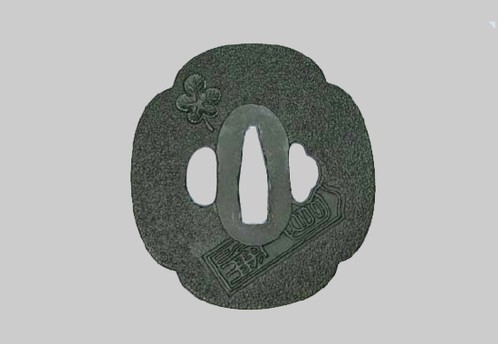

More informations about this product
Tsuba Mokko Gata (Quadrangle shape) Hijikata Tanabata (土方七夕), Ishime design with Plum Flower (梅花 - Baika) and Ink Stone (硯 - Suzuri), Maru Mimi round border, With a Kozuka and Kogai Ana.
This Tsuba is a reproduction of the Katana Tsuba belonging to Hijikata Toshizō (土方歳三), and now on display at the Ryozen Museum of History in Kyoto.
Hijikata Toshizō was one of the founders of the Shinsengumi, under the orders of the Tokugawa Shogunate, in charge of maintaining order in the city of Kyoto during the Bakumatsu (1863-1868) The end of the Edo period.
Hijikata was feared for his intransigence and toughness, in the purest Bushido style, to such an extent that he was nicknamed the demonic vice-commander (鬼の副長, Oni no Fukuchō).
Hijikata was a self-taught swordsman and also practiced in a Tennen Rishin-ryū dōjō.
He also received from his older brother the passion of Haiku, which brings us to Tanabata (七夕).
Tanabata, literally the 7thth evening of the 7thth month (so July), is also known as the Star Festival (Hoshi matsuri - 星祭). This festival was institutionalized by the Tokugawa shogunate, which was therefore defended by Hijikata.
Using the ink stone (Suzuri) one wrote a wish on a Funabata (small vertical card to write poems), and that these wishes will be fulfilled.
The flower of plum, Baika, has a symbolism of courage in difficult circumstances.
Share your opinion
error Your review appreciation cannot be sent
feedback Report comment
check_circle Report sent
error Your report cannot be sent